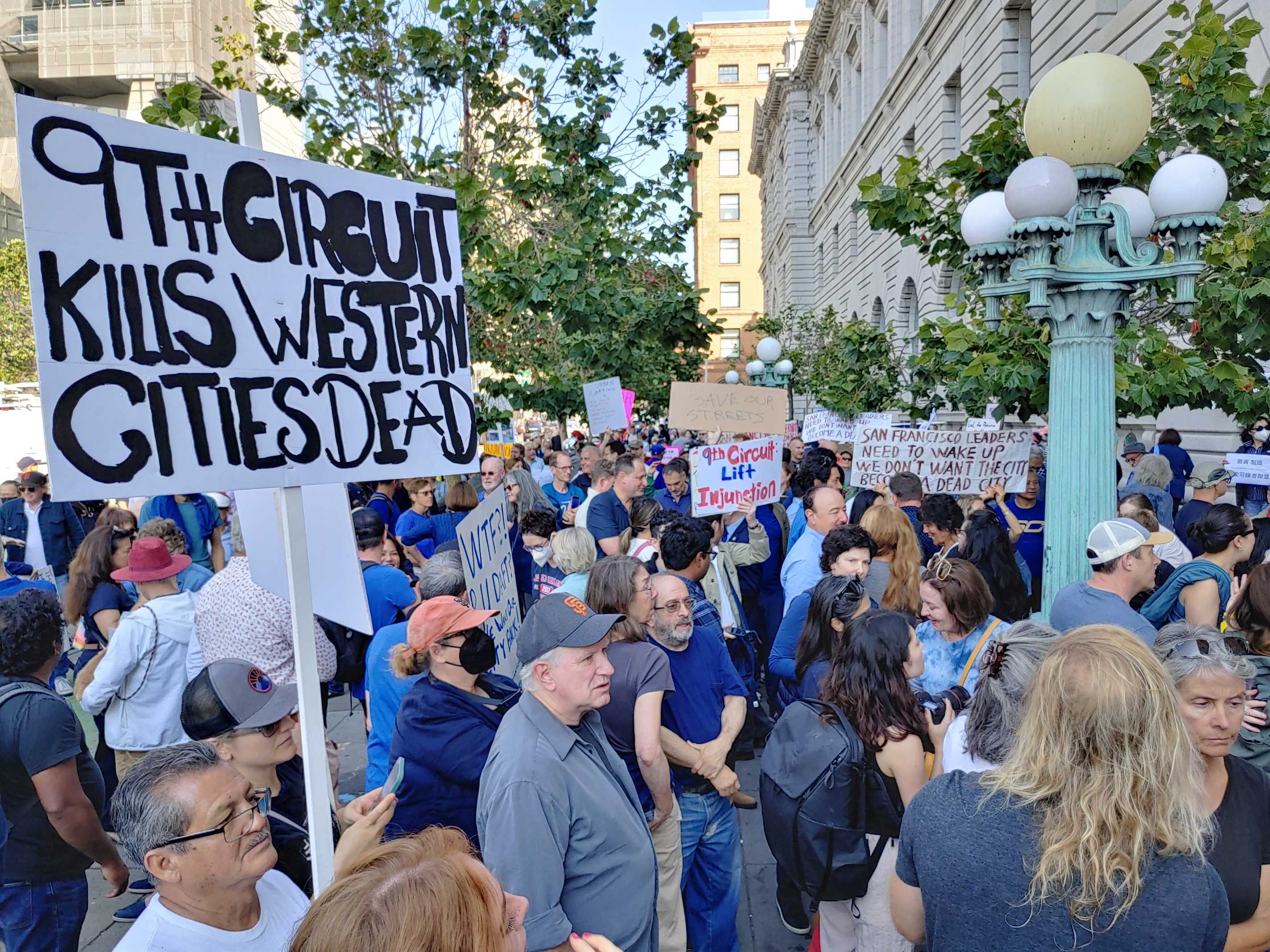San Francisco is asking the United States Supreme Court to reverse a federal ruling that requires cities to have more shelter beds than the number of homeless people.
City Attorney David Chiu’s filing argues that a judge’s opinion in the Oregon case Johnson v. Grants Pass, which reaffirmed the rights of homeless people to sleep outside, has made it unreasonably difficult for San Francisco to make progress on its homelessness crisis.
The filing comes as San Francisco battles a lawsuit brought by a local advocacy group called the Coalition on Homelessness, which accused the city of routinely enforcing anti-camping laws without offering shelter in violation of another legal precedent set in a case called Martin v. Boise.
San Francisco has just over 3,000 shelter beds typically filled to near capacity as roughly 4,000 people sleep on the city’s streets on any given night, according to the most recent count.
U.S. Magistrate Judge Donna Ryu sided with the coalition in a preliminary injunction that restricted the city’s ability to enforce laws that prohibit sitting, lying or lodging on public property.
Chiu and Mayor London Breed joined Gov. Gavin Newsom in calling on the U.S. Supreme Court to examine previous cases that have similarly restricted enforcement against involuntarily homeless people. Chiu’s office argues in his new filing that the court’s decision in Johnson v. Grants Pass stemmed from a misreading of a previous case.
“The decision has made it needlessly more difficult for San Francisco to address its ongoing homelessness crisis and to provide services,” the filing reads.
The Bay Area Council, a business advocacy group, and Neighbors for a Better San Francisco, a nonprofit that advocates for public safety, also asked the Supreme Court to reexamine the Grants Pass decision.
The filings argued that federal rulings have exacerbated homelessness on the West Coast and created confusion for cities that are managing encampments. The Neighbors for a Better San Francisco filing was signed by dozens of prominent business leaders, companies and individuals.
The city’s data shows its outreach teams have seen people accepting shelter at higher rates this year, although the number of encampments is on the rise.
The Coalition on Homelessness has argued that the enforcement of anti-camping laws makes it more difficult for people to escape homelessness.
The court is scheduled to discuss the petitions on Oct. 27.
